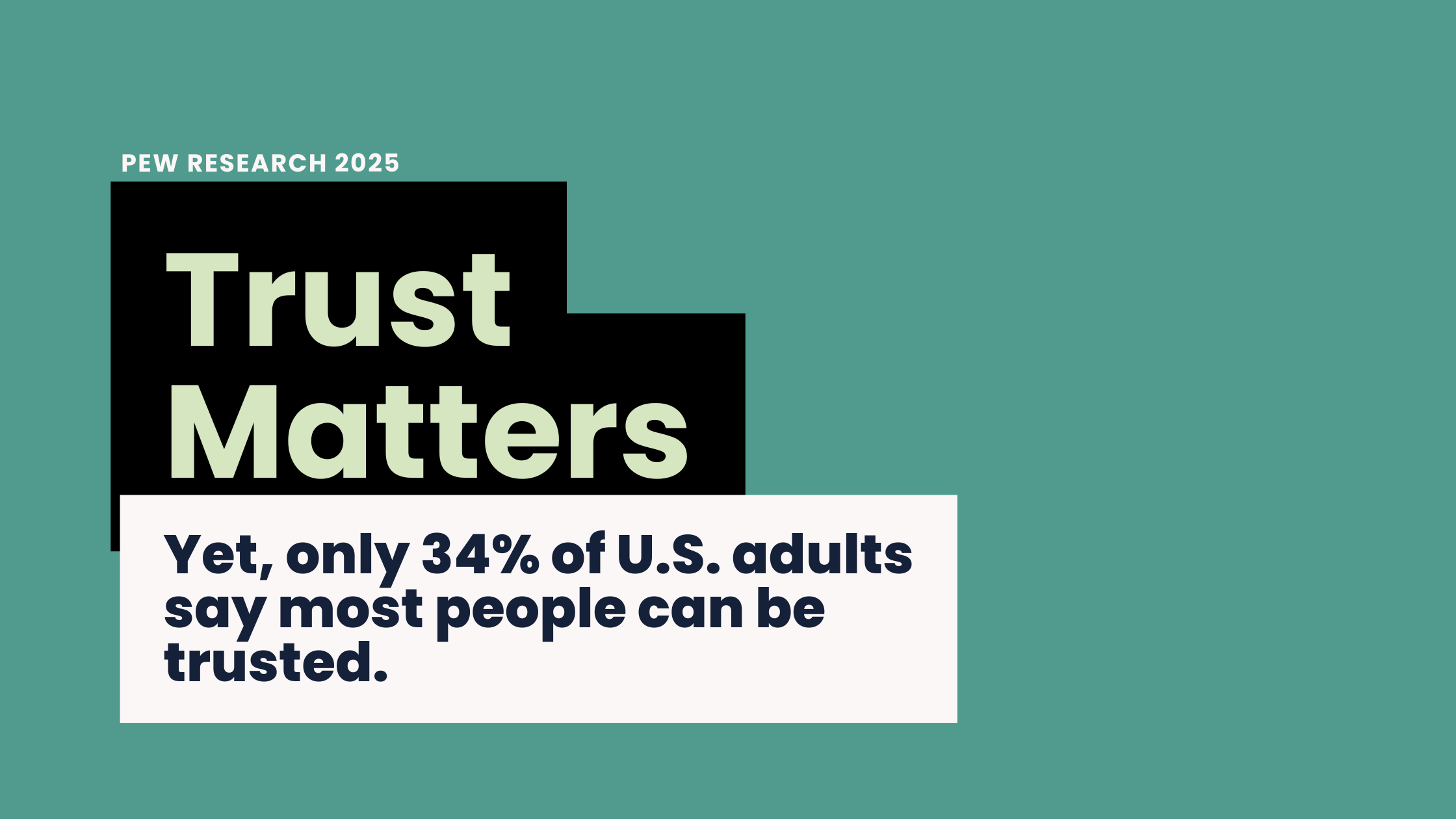New Research Shows Why Trust at Work Matters More Than Ever
As organizational leaders, we often talk about trust. We work to build it with customers and donors, strengthen it among teams, and earn it from stakeholders. But a new report from Pew Research Center reminds us that trust isn’t just a workplace issue. It’s a societal one. And right now, Americans' trust in one another is alarmingly low.
According to Pew’s May 2025 study, only 34% of U.S. adults say most people can be trusted, a sharp decline from 46% in the 1970s. That number has remained stagnant in recent years, with significant implications not just for civic life, but for the business environment we all operate in.
What This Means for Workplace Leaders
Trust fuels economic exchange, collaboration, and resilience. When trust erodes, so does our ability to problem-solve across sectors and communities. Pew’s findings offer a few clear signals for business leaders:
Workplace Culture Is a Microcosm of Society
Employees bring their lived experiences to work. Those who have faced economic insecurity or discrimination are less likely to express generalized trust. That has implications for how we lead, communicate, and foster inclusion.Neighbor Trust Outpaces General Trust
While broad trust is low, 44% of people say they trust their neighbors. This tells us proximity and personal connection matter. Business leaders can lean into this insight by building trust locally—whether that means neighborhood partnerships, visible leadership, or community engagement.People Who Trust Others Are More Engaged
According to the report, individuals who trust others are significantly more likely to engage in civic and cooperative behavior. This translates to the workplace, too: higher-trust cultures often yield better teamwork, productivity, and retention.
Disparities in Trust Reflect Broader Divides
The report also breaks down trust levels by race, income, and education. Black and Hispanic Americans report lower levels of trust in others (21% and 23%, respectively) than White and Asian Americans. People with lower incomes and less formal education also tend to express lower trust.
As employers, this is a reminder that equity isn’t just about wages or opportunities—it’s about addressing the root causes of disengagement and disconnection that show up in how people work, communicate, and participate.
What Business Leaders Can Do
Building trust doesn’t require a national campaign. It starts in our companies, our neighborhoods, and our conversations. Here are a few practical steps:
Invest in Belonging
Build inclusive environments where all employees feel safe, respected, and empowered to contribute.Model Integrity and Transparency
Be consistent and clear in decision-making, especially when the stakes are high or the outcomes uncertain.Support Civic and Community Engagement
Encourage employees to engage beyond the workplace, whether through volunteering, voting, or local involvement.Bridge Divides with Dialogue
Create spaces for conversation across backgrounds, roles, and viewpoints. Trust grows when people feel heard.
The Bottom Line
Low social trust isn’t just a public issue. It’s a business risk. It affects our teams, our supply chains, our communities, and our collective ability to adapt to change. But it’s also a business opportunity—because leaders who take trust seriously can help rebuild it, one workplace and one relationship at a time.
You can read the full Pew Research Center report here:
Americans’ Trust in One Another | Pew Research Center (2025)
